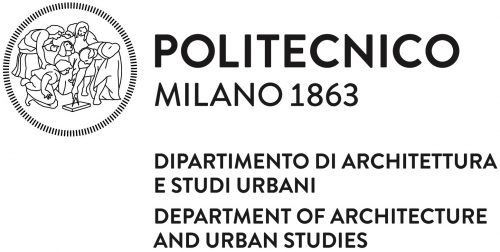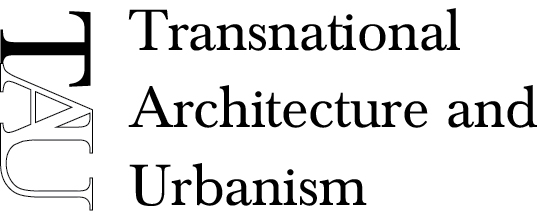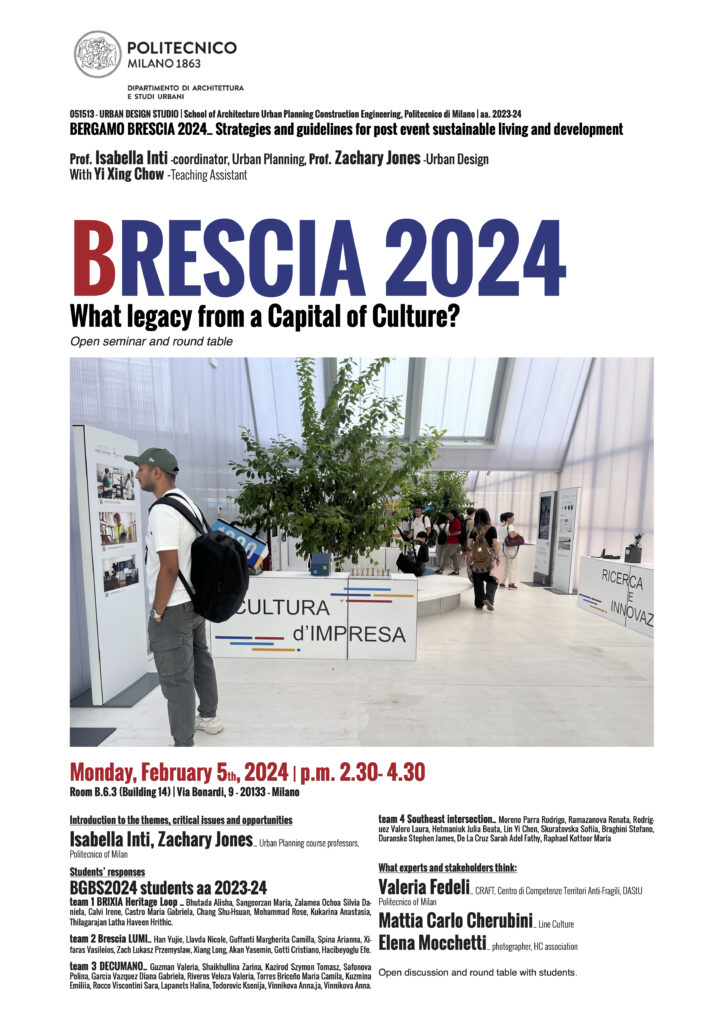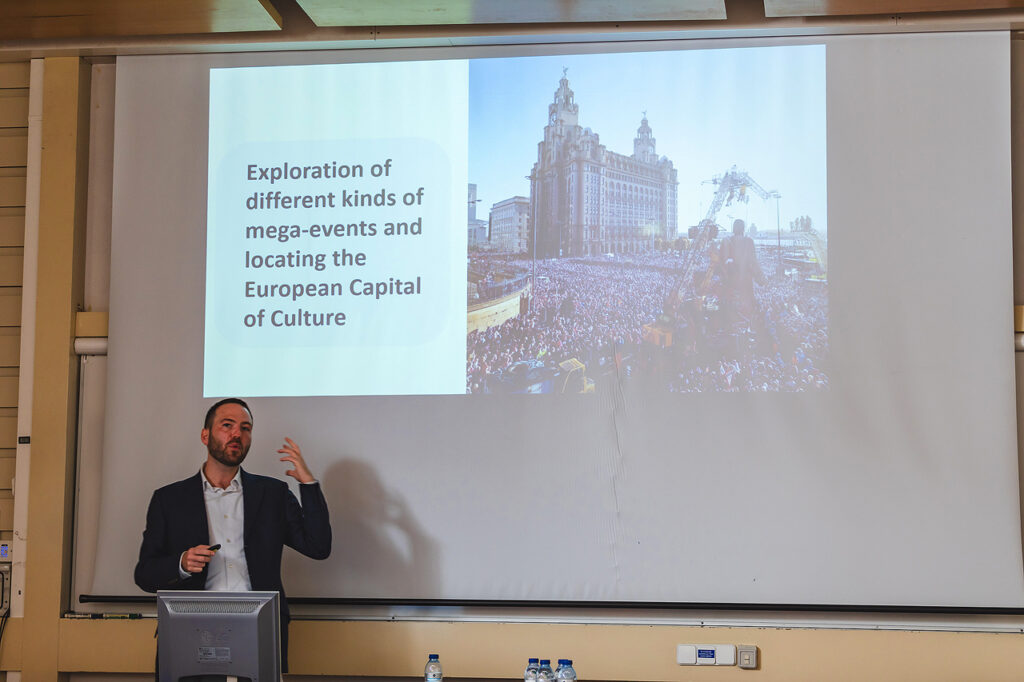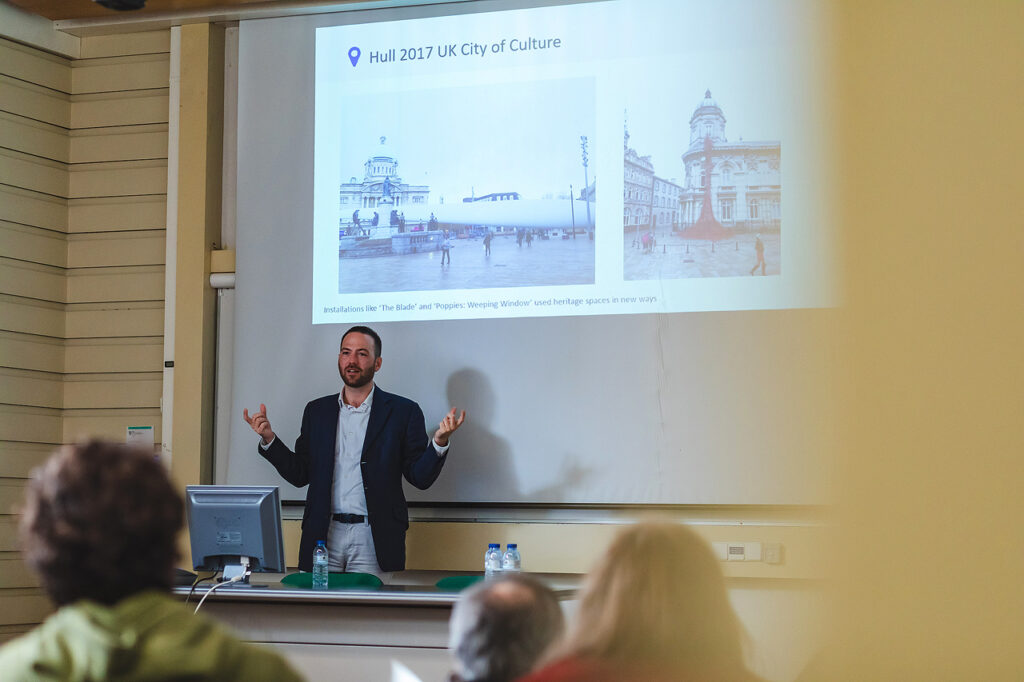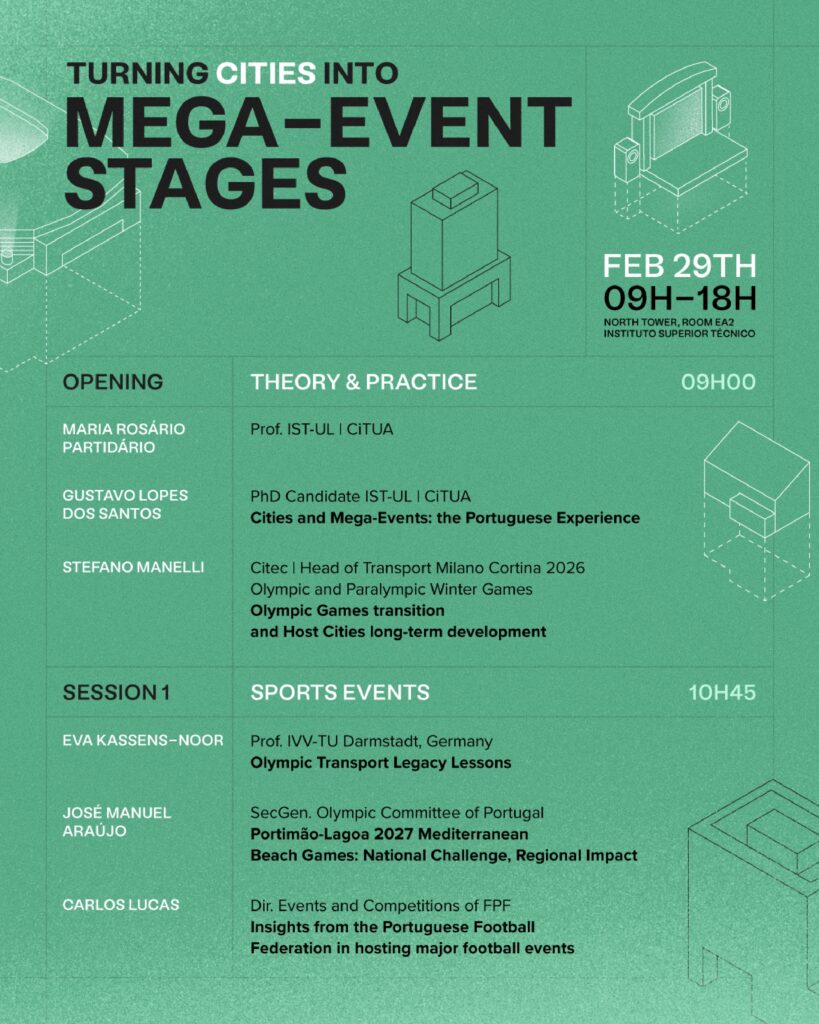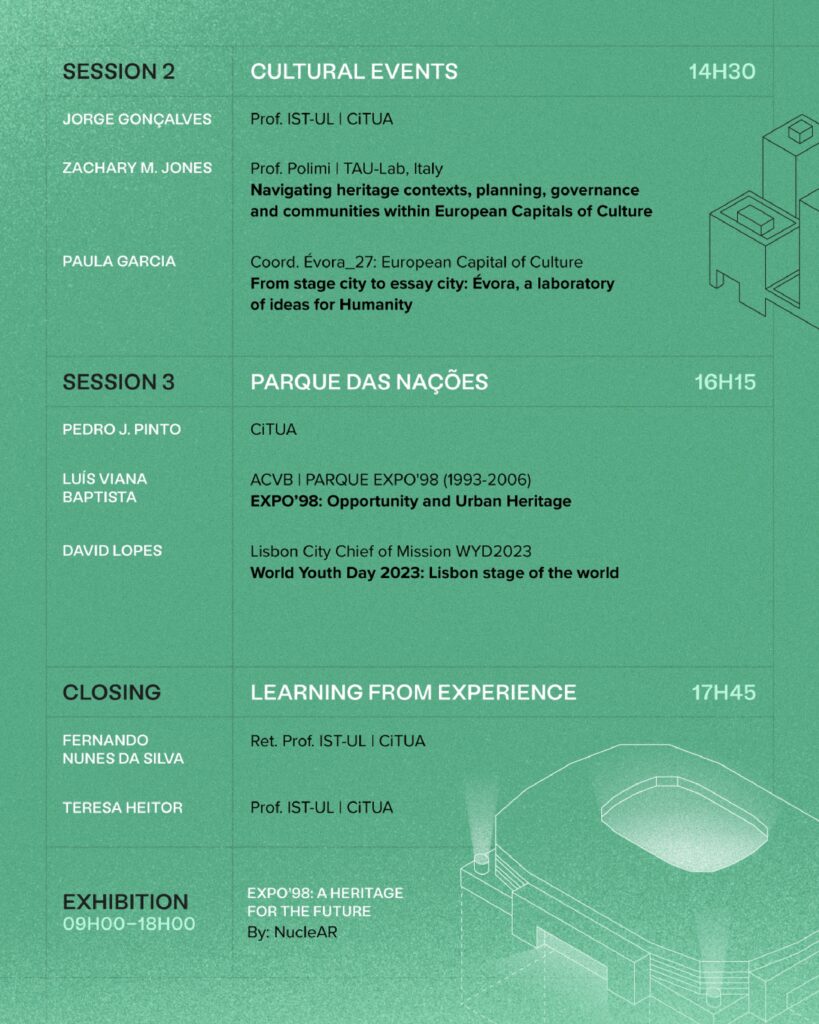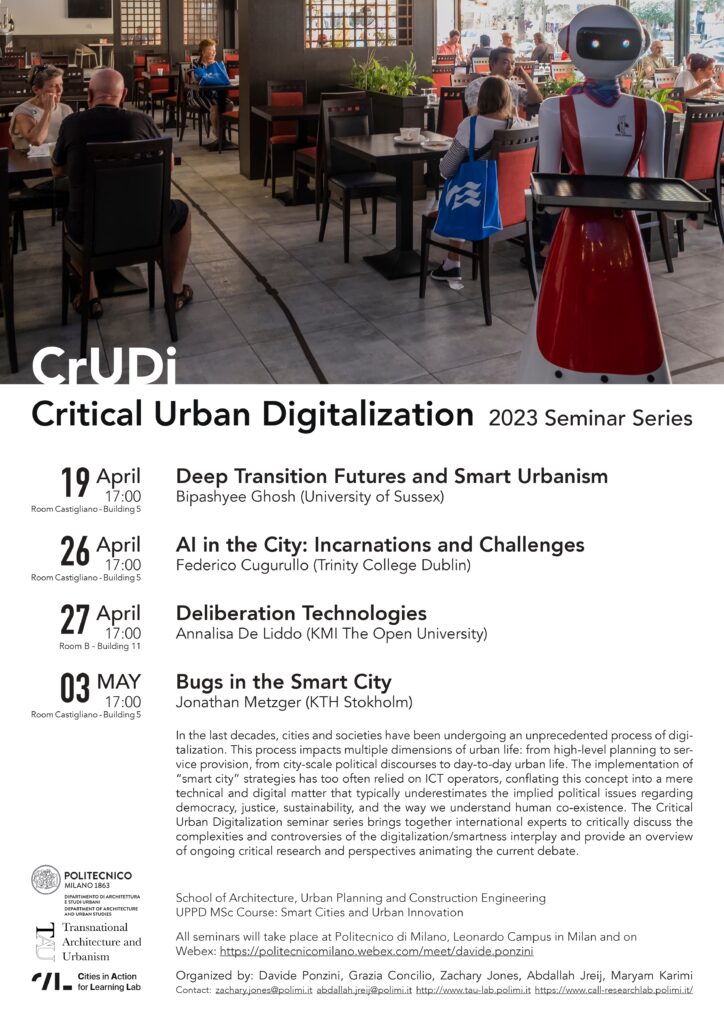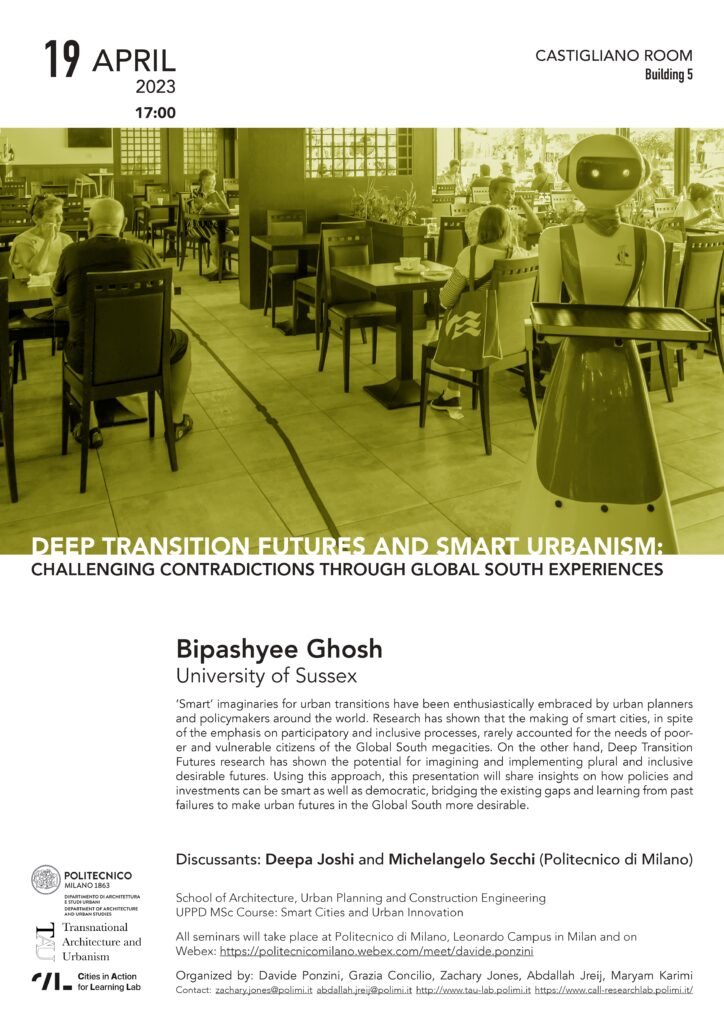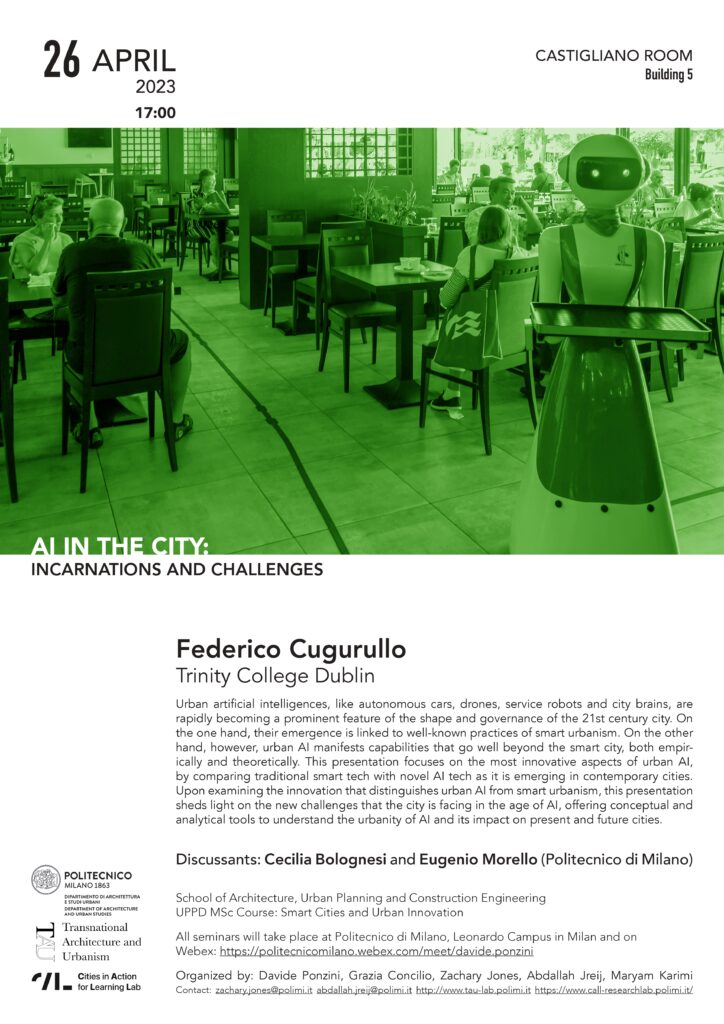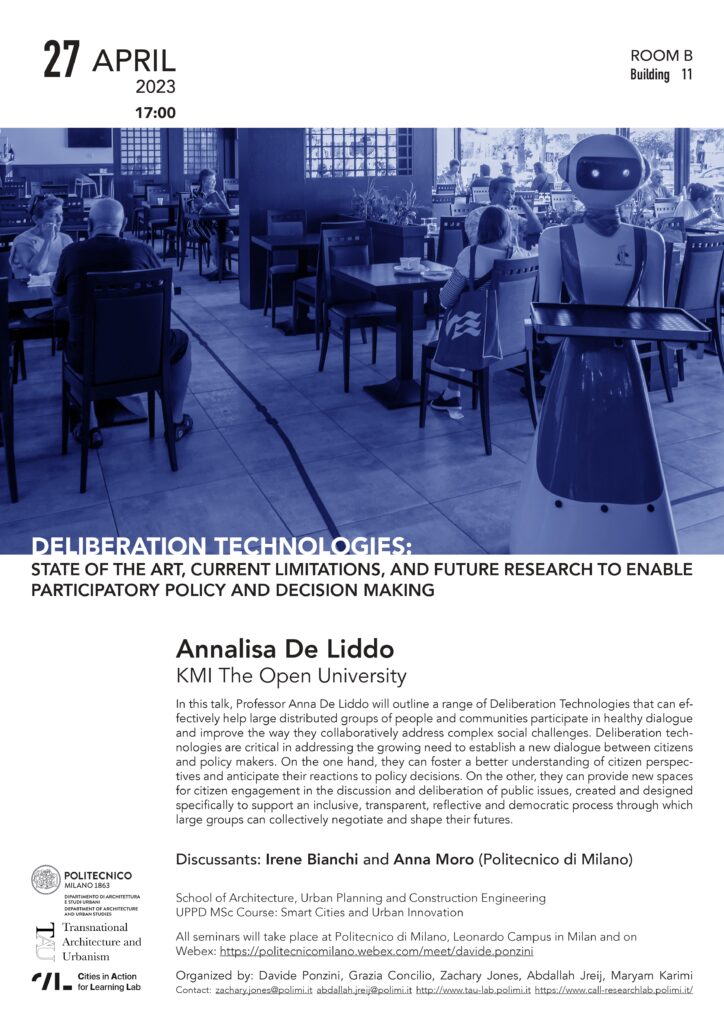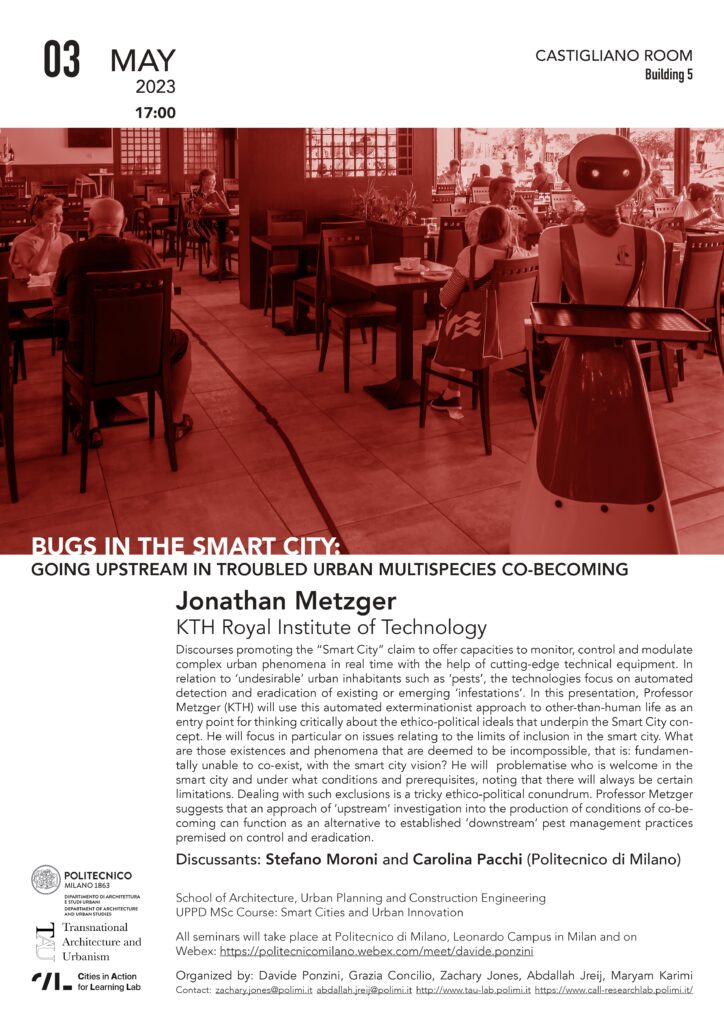Davide Ponzini, Zachary Jones and Abdallah Jreij present the book Milan Cultural Mega-events in conjunction with Luigi Casanova presenting his book Ombre sulla neve. The event, open to the public, addressed the five main themes of the book and generated a public discussion about the legacy of the 2015 Expo and the goals of the upcoming 2026 Winter Olympic Games.
Category: Events Archive
I Grandi Eventi Giubileo 2025 e Olimpiadi di Milano-Cortina 2026
Davide Ponzini presents some of the findings of the recent publication Milan Cultural Mega-events: From the 2015 Expo through the 2026 Winter Olympics. In the presentation he highlights the spatial particularities of the Milano Cortina 2026 Winter Olympics in comparison to past events as well as the potentiality for a cultural legacy of the future event based on the experience of hosting the 2015 Expo.
BRESCIA 2024: What legacy from a Capital of Culture?
Presentation of the student work from 051513 – URBAN DESIGN STUDIO | School of Architecture Urban Planning Construction Engineering, Politecnico di Milano | aa. 2023-24.
Monday, February 5th, 2024 | p.m. 2.30- 4.30. Room B.6.3 (Building 14) | Via Bonardi, 9 – 20133 – Milano
Participants
- Isabella Inti (Politecnico di Milano)
- Zachary M. Jones (Politecnico di Milano)
- Valeria Fedeli (Politecnico di Milano)
- Mattia Carlo Cherubini (Line Culture)
- Elena Mocchetti (photographer, HC association)
Turning Cities into Mega-event Stages: From Theoretical Considerations to Practical Implementations in Portugal
Dr. Zachary M. Jones gives the presentation Navigating heritage contexts, planning, governance and communities within European Capitals of Culture. He overviews the important role that Cultural mega-events can play in cities and presents some of the main findings from the HOMEE Research Project and examples of how to implement the recommendations from the Charter for Mega-events in Heritage-rich Cities.
February 20, 2024
Instituto Superior Tecnico, Lisbon
Critical Urban Digitalization 2023 Seminar Series
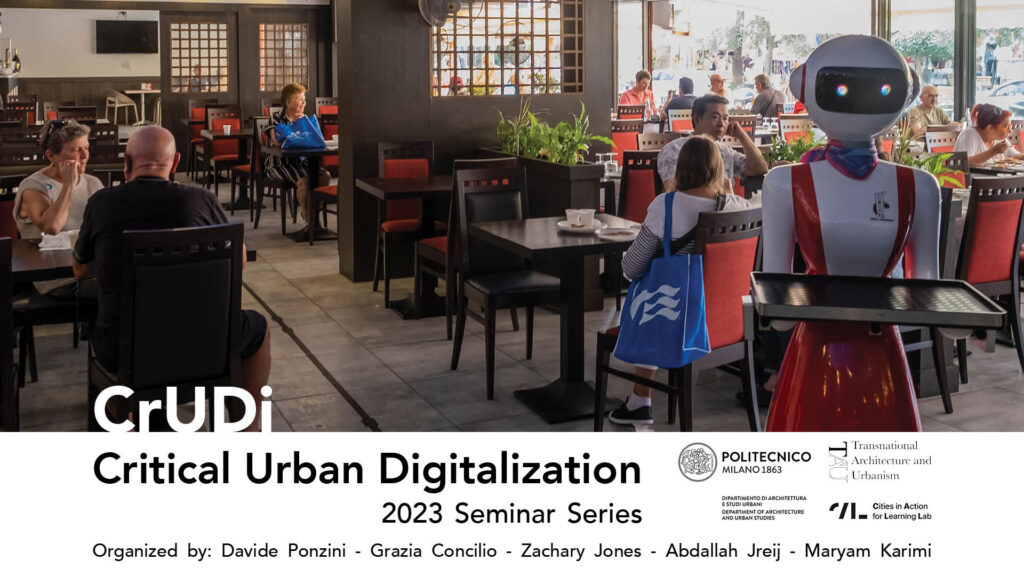
In the last decades, cities and societies have been undergoing an unprecedented process of digitalization. This process impacts multiple dimensions of urban life: from high-level planning to service provision, from city-scale political discourses to day-to-day urban life. The implementation of “smart city” strategies has too often relied on ICT operators, confating this concept into a mere technical and digital matter that typically underestimates the implied political issues regarding democracy, justice, sustainability, and the way we understand human co-existence. The Critical Urban Digitalization seminar series brings together international experts to critically discuss the complexities and controversies of the digitalization/ smartness interplay and provide an overview of ongoing critical research and perspectives animating the current debate.
Program
“Deep Transition Futures and Smart Urbanism: Challenging contradictions through Global South experiences”
April 19, 2023, 17:00, Room Castigliano (Building 5)
Bipashyee Ghosh (University of Sussex)
“AI in the City: Incarnations and Challenges”
April 26, 2023, 17:00, Room Castigliano (Building 5)
Federico Cugurullo (Trinity College Dublin)
“Deliberation Technologies: State of the Art, Current Limitations, and Future Research to Enable Participatory Policy and Decision Making”
April 27, 2023, 17:00, Room B (Building 12)
Annalisa Deliddo (KMI The Open University)
“Bugs in the smart city: Going upstream in human-mosquito co-becoming”
May 3, 2023,17:00, Room Castigliano (Building 5)
Jonathan Metzger (KTH Royal Institute of Technology)
